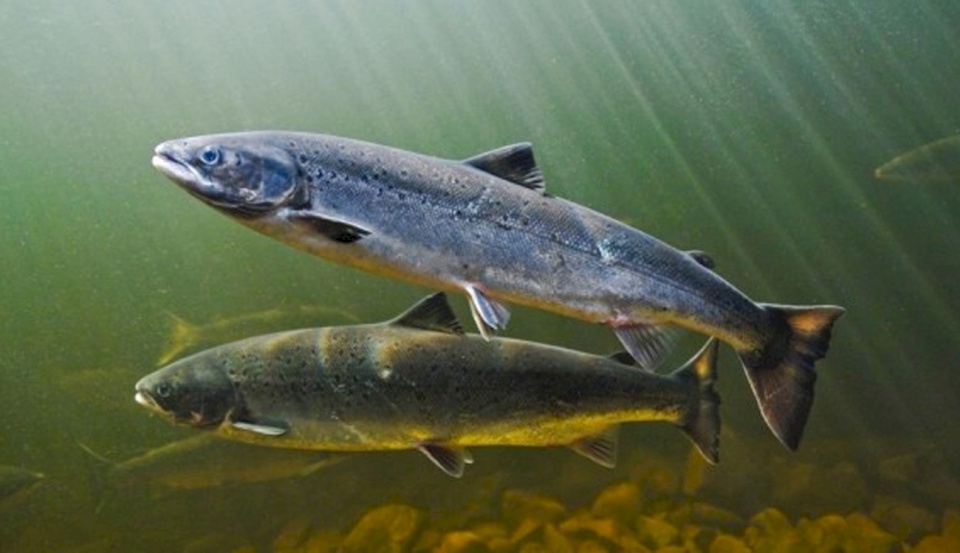
6 Types of Fish That Naturally Boost Vitamin "D"
SadaNews - Vitamin "D" is an essential element in the diet due to its pivotal role in calcium absorption, supporting bone growth, and regulating cell functions. Although sunlight is the primary natural source of vitamin "D", certain types of fatty fish provide significant amounts, making them an ideal choice for those who suffer from its deficiency or do not get enough sun exposure.
Here is a list of the six most prominent types of fish rich in vitamin "D", according to a report published by "Verywell Health":
1. Rainbow Trout
This type of fish, known for being part of the salmon family, offers about 81% of the recommended daily intake of vitamin "D" in just one meal. Trout is characterized by its tender texture and mild flavor, and it also contains protein, healthy fats, and a variety of other vitamins.
2. Mackerel
Mackerel is considered a fatty fish rich in vitamin "D" and "Omega-3" fatty acids. Multiple studies have linked the consumption of healthy fats to reduced risks of heart disease and certain types of cancer. Research also suggests that "Omega-3" may contribute to improved brain health and lower the risk of dementia and Alzheimer’s disease as one ages.
3. Salmon
Salmon is one of the most popular types of fish and is a rich source of vitamin "D". Studies show that wild salmon has higher levels of the vitamin compared to farmed salmon. In one study, it was found that salmon caught from the Baltic Sea contains between 556 and 924 International Units of vitamin "D" per serving.
Salmon also contains "B" vitamins, which play a vital role in cell growth, DNA repair, and enhancing brain and nervous system function.
4. Sardines
Despite their small size, sardines are a true nutritional treasure; they can be eaten directly from the can or added to salads, pasta, or pizza. They contain a good amount of vitamin "D" in a relatively small serving, along with "Omega-3" fatty acids, "B" vitamins, protein, and calcium.
5. Tuna
Whether grilled, baked, or canned, tuna is a rich source of vitamin "D", vitamin "A", and protein. However, it is important to pay attention to its mercury content, a heavy metal that can cause health problems in the long term. Experts recommend choosing light canned tuna as it contains lower mercury levels, and avoiding excessive consumption, especially for pregnant or nursing women.
6. Herring
Herring is rich in vitamin "D", protein, calcium, phosphorus, potassium, and healthy fats. It is available in the market fresh or pickled. However, one should be aware that pickled herring contains high sodium levels; thus, it is advised to avoid it for those with high blood pressure or those on a low-sodium diet.
Why is Vitamin "D" important?
Vitamin "D" can be obtained through food, dietary supplements, or sun exposure. Quantities of it are also added to certain food products such as milk and breakfast cereals. This vitamin plays a fundamental role in: calcium absorption, bone growth, cell development, reducing inflammation, and supporting the immune system.
For people who do not get much sun exposure or suffer from vitamin "D" deficiency, these six types of fish represent a natural and effective dietary option to compensate for this deficiency within a balanced diet that protects bones and strengthens immunity.

From Germany to Switzerland: Leaning Towers Challenge the Famous Leaning Tower of Pisa

New Crisis at Real Madrid Caused by "Marginalized" Player

Stunning Cosmic Display of a Dying Star.. Hubble Captures the Most Detailed Image of the '...

The Art That Defeated Geography: Venezuelan Artist Masters Turkish "Ebru" Thousands of Kil...

Head and Neck Cancer: When 'Hoarseness' or 'Difficulty Swallowing' Signals Danger

"Luna Ring".. A Solar Ring Around the Moon Promises a New Era of Energy for Earth

New Updates to Hypertension Treatment Protocol

